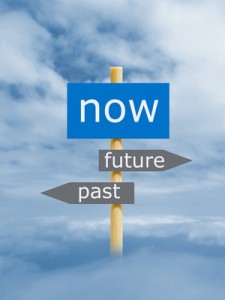 There are many types of interviews, from the free-flowing to the formal, but one that you are likely to come up against at some point is the competency-based interview. Competency-based interviews or structured or behavioural interviews are more systematic, with each question targeting a specific skill or competency.
There are many types of interviews, from the free-flowing to the formal, but one that you are likely to come up against at some point is the competency-based interview. Competency-based interviews or structured or behavioural interviews are more systematic, with each question targeting a specific skill or competency.
Employers increasingly want potential employees to bring something to the business that they may not have; this may be a way of doing things, an awareness of pitfalls in certain initiatives or different systems of working. Effectively, from a candidate’s perspective, it allows them to “strut their stuff”.
“It doesn’t make sense to hire smart people and then tell them what to do; we hire people so they can tell us what to do!”
Steve Jobs

Article by Brian Flynn (Executive Search)
CareerWise are increasingly seeing employers using competency-based interviews as part of the selection process. Typically, they require candidates to describe initiatives and projects they’ve driven and outline the consequences and benefits to the business. By their nature they’re designed to make the job application process as objective as possible, removing any conscious or subconscious bias by the interviewer by asking each candidate the same questions.
The logic is that past behaviour is the best predictor of future behaviour.
I feel the below 5 points are very important:
1. You need to be fully aware of what the role entails; understand the job and if it’s possible to get additional information, do so. It is critical to understand the key expectations of the holder of the role.
2. Know your CV. Where you have outlined achievements or accomplishments, be prepared to talk with authority. If your achievements are verifiable, state that.
3. Emphasise where you feel you can add value to the organisation. Based on your experience, highlight what will be of interest to your prospective employer
4. Use “I” instead of “we”. “I” signifies ownership and responsibility.
5. Where the company has a Vision Statement, or a Credo, know it and be able to link your examples to their beliefs. If you don’t have it, ask for it.
“Resources are hired to give results, not reasons.”
– Amit Kalantri
You only get one chance to “wow” the hiring manager, which is why I also highly recommend using the S.T.A.R. (Situation, Task, Action and Result) method.
In behavioural interviewing, every answer should specifically address the skill in question. Your response should relate to an experience from a previous job assignment, project, academic study, or community work. Present a diverse set of experiences, supplementing each question with a distinct experience will help you portray a wide range of skills and interests.
S – Situation: You need “success stories” to give fantastic answers to behavioural questions. Usually, a success story revolves around a past work experience. However, for recent grads or those with little work experience, a success story can be taken from other events in your life such as college, sports teams, volunteer work etc… The point is it must highlight the quality they are looking for. Setting the context for your story. Describe the specific situation you were in or the task you needed to complete. This is where you set up the story but remember to be concise.
T – Task: Specify the goal or measurable target you were working towards. You can highlight the key challenges the task presented here just make sure you are clear about the details.
A – Action: Describe the specific actions you took to address the situation. This should be a detailed response focused on what you did not what the team did. It should showcase all your skills including soft skills and displays of emotional intelligence. This is arguably the most important element of your answer as it’s where you demonstrate your attributes and capabilities that are being tested by the question.
R – Result: Clearly describe the outcome of your actions. What happened? How did things end? What did you accomplish? What did you learn? By practicing the STAR method the interviewer should hear you speak seamlessly through each component of your story, with no waffling.

Joe Robbins is co-founder of CareerWise Recruitment. A graduate of the University of Limerick (Degree in Business Studies, 1985), Joe worked in the UK for five years where he specialised in materials management, production management and plant management for a number of companies.
He returned to Ireland in 1992 to become Operations Manager for a Cork-based start-up, FMC Automotive Division which was subsequently taken over by Snap-on Equipment. Joe managed the business re-location of this company to Shannon in 1997 before setting up CareerWise Recruitment in 1999.
He is a committee member of the Chartered Institute of Personnel and Development (CIPD) Mid-West region, and a former Director and Vice President of the Shannon Chamber of Commerce. Joe is former Chairperson of the Sixmilebridge Camogie Club and current Chairperson of the Clare County Camogie Board.
CareerWise Recruitment. EastGate Village, EastGate, Little Island, Cork.
Phone: +353 (0) 21 206 1900
Email: info@careerwise.ie